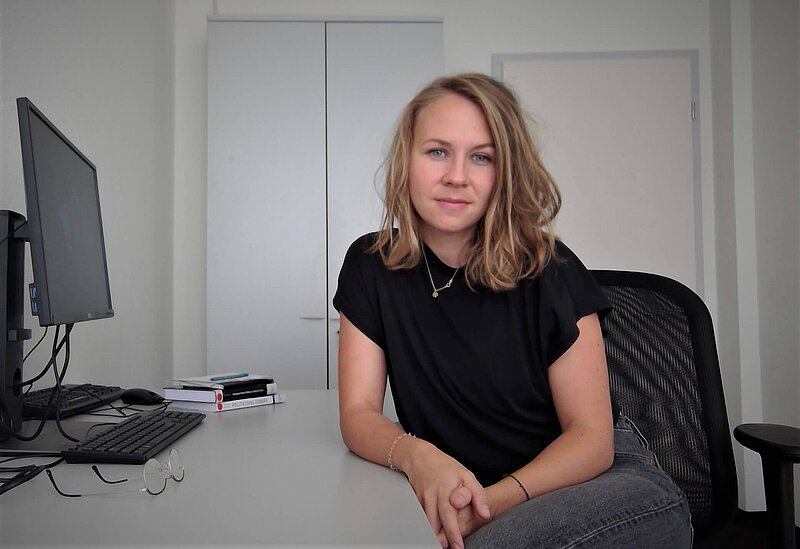
In her PhD, Franziska Loschert looks into the design of EU labour migration policies. After work, she loves cycling across the Tempelhofer Feld and is convinced that there are better arguments for European Integration than "free EU-wide roaming".
In this new series, we introduce the PhD students at the Jacques Delors Centre and their research projects and thoughts on the European Union with six questions. We start with Franziska Loschert, who has started her PhD thesis "Public Politicisation and Economic Interests: member states’ preference formation regarding EU immigration policies" in 2016.
1. What is the main focus of your research?
I study the influence of employers’ interests on the design of EU labour migration policies, in particular in times when both EU and immigration are highly salient and contested in the public. The research goes to the heart of one of the main theoretical puzzles in the literature of EU studies: Do member states still represent the specific interests of producers when negotiating policies in the Council? Or are they discouraged to do so by a domestic public that is increasingly willing to sanction policy-makers in the next elections for decisions taken in Brussels? My findings suggest that it is not so much the concerns of the public that prevent strong harmonisation at the EU level. More often than not, it is the employers that seek to prevent a liberal, EU-wide admission scheme. They fear for an increased competition between member states to attract and keep ‘the best and brightest’ workers for their national labour markets. Hence, ‘business as usual’ dominates the policy positions of governments in Council negotiations.
2. How did you end up working on the EU?
Ever since I started studying Political Science, the EU is lurching from one crisis to the next. As a student I was keen on understanding how we ended up in this crisis-mode and (being young and idealistic) how we could get out of it in a sustainable manner.
3. In your opinion, what is the most important issue the EU needs to solve?
In my opinion, the EU has to overcome the populists’ ‘identity politics trap’. We have to redirect the debate about the future of Europe to topics populists feel less comfortable with, but that are of immediate importance for our wellbeing. We should not shy away from leading controversial political conflicts on economic and social issues, rather than identity politics. What is the economic and social model we want to live and work in? How can it promote social and economic convergence and strengthen social cohesion across member states, class, gender and ethnicity? Free EU-wide roaming should not be the first and most compelling argument that comes to mind in favour of European Integration.
4. What is your favourite place in Berlin to relax after an intense work day?
It’s on my bike, cycling across Tempelhofer Feld, enjoying the clouds and the wind.
5. What is the research question you would really like to answer one day?
I would like to answer my PhD research question again, but in 40 years when I am (hopefully) happily retired and a bit wiser. It might be interesting to see how things have changed both empirically as well as academically in the meantime.
6. What keeps you motivated in your daily work?
My colleagues. Especially in times of a global pandemic and social distancing, writing a PhD thesis can (but does not have to) be a very solitary experience. Connecting and sometimes commiserating on a regular basis with your peers (online) while studying and writing is immensely encouraging and supportive. It also helps to overcome procrastination attempts, such as cleaning the bathroom or checking the news.
